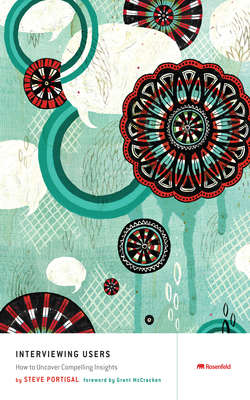Читать книгу Interviewing Users - Steve Portigal - Страница 14
На сайте Литреса книга снята с продажи.
To Interview Well, One Must Study
ОглавлениеMuch of the technique of interviewing is based on one of our earliest developmental skills: asking questions (see Figure 1.5). We all know how to ask questions, but if we asked questions in interviews the way we ask questions in typical interactions, we would fall short. In a conversational setting, we are perhaps striving to talk at least 50 percent of the time, and mostly to talk about ourselves. But interviewing is not a social conversation. Falling back on your social defaults is going to get you into trouble!
FIGURE 1.5 Childhood is marked by frequent, inevitable question-asking.
Interviewing users involves a special set of skills. It takes work to develop these skills. The fact that it looks like an everyday act can actually make it harder to learn how to conduct a good interview because it’s easy to take false refuge in existing conversational approaches. Developing your interviewing skills is different than developing a technical skill (say, milkshake-machine recalibration) because you would have nothing to fall back on if learning about milkshake machines. With interviewing, you may need to learn how to override something you already know. Think of other professionals who use verbal inquiry to succeed in their work: whether it is police officers interrogating a suspect or a lawyer cross-examining an opposing witness or a reference librarian helping a patron, the verbal exchange is a deliberate, learned specialty that goes beyond what happens in everyday conversation. For you as an interviewer, it’s the same thing.
